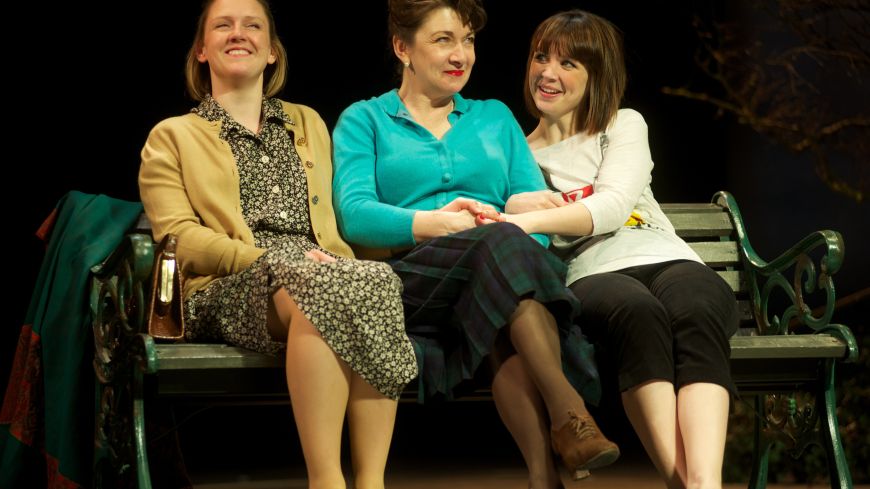
"The next play I write will definitely be a funny one, a very funny one, at any rate in conception"
- Anton Chekhov on The Cherry Orchard in 1901.
One of the many great dilemmas in understanding The Cherry Orchard is to know whether or not it is a comedy. Whilst Chekhov believed that the whole play was cheerful and frivolous, Stanislavski, the great Russian theatre director and co-founder of the Moscow Art Theatre, insisted "it’s a tragedy...I wept like a woman."
Are we to laugh or are we to cry? No doubt, both. But this is easier said than done when dealing with the corporate heart of the beast: the audience. The text is so ambiguous that in order to sustain a coherent narrative many that perform The Cherry Orchard push the tone in one direction or the other.
How can one begin to overcome the problems that the play presents?
Well, you can do what John Byrne has done: write your own version.
Swept up from Revolution-era Russia and deposited in late 1970’s Scotland, Byrne’s post “Winter of Discontent” retelling of Chekhov’s tale of social upheaval is a funny, heartbreaking and thought-provoking homage to a timeless masterpiece.
Time is nearly up for the Ramsay-Mackays. Their once flourishing fortune has diminished and all that’s left is the grand old family home. But the hyenas’ are out. Before long the winds of change are rustling through their beloved Cherry Orchard and the iron fist of the modern world is knocking on their door.
Do not be dismayed by the tag “a new version”. Everything that made The Cherry Orchard great is right here. Byrne has just brought a fresh splash of colour to sharpen the plays themes for a modern audience.
The cast are wonderful beyond comprehension. Each performance shining with star quality and as an ensemble will be ranked as the finest the Lyceum has produced this season.
Particularly interesting was Matthew Pidgeon as Trotter (aka Trotsky). Trofimov (as he is named in Chekhov’s original) has many times suffered in translation and been portrayed as a childish personality who is too afraid to face the real world. This is down to him proclaiming himself in English as ‘the eternal student’, which can also be interpreted as being ‘the eternal schoolboy’. In Russian, vyechniy student is a variant of vyechniy zhid: the eternal Jew.
Chekhov takes Trofimov seriously as one who is willing to suffer for what he believes in. Whilst there is a silly element put across by Matthew Pidgeon there is also an intense intelligence and passion in his eyes and, as a result, stands closer to the character intended than the character misinterpreted.
The themes of time, change and death are evident throughout and are projected beautifully. And despite these themes being as heavy as they are, there are moments of rib-breaking hilarity taken from both the source and the brilliance of John Byrne ( a “face like a broken biscuit” line had the audience on the floor).
And as the show closes we are left with the same handful of mysteries as we were with Chekhov, inviting much discussion and, no doubt, another visit. Where does the £30,000 that appears in McCracken’s bank come from? What happens to Ainsley at the end of the play? Why when Wishart sends the regards from another unseen lady does nobody reciprocate? What is the significance of the frequent notion of daze and dream?
The play is a fascinating one and this production gives it all of the magic and wonder that it deserves. Simply outstanding.
The Cherry Orchard runs til 8 May

